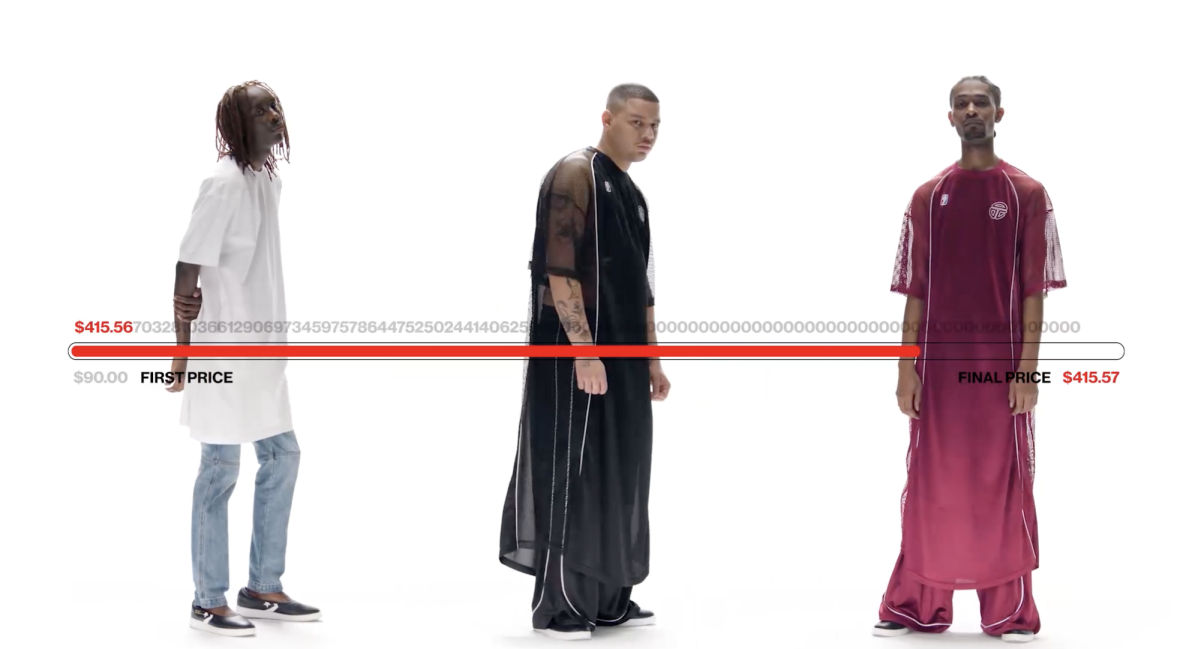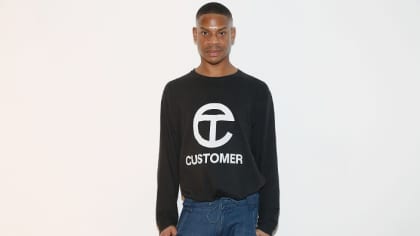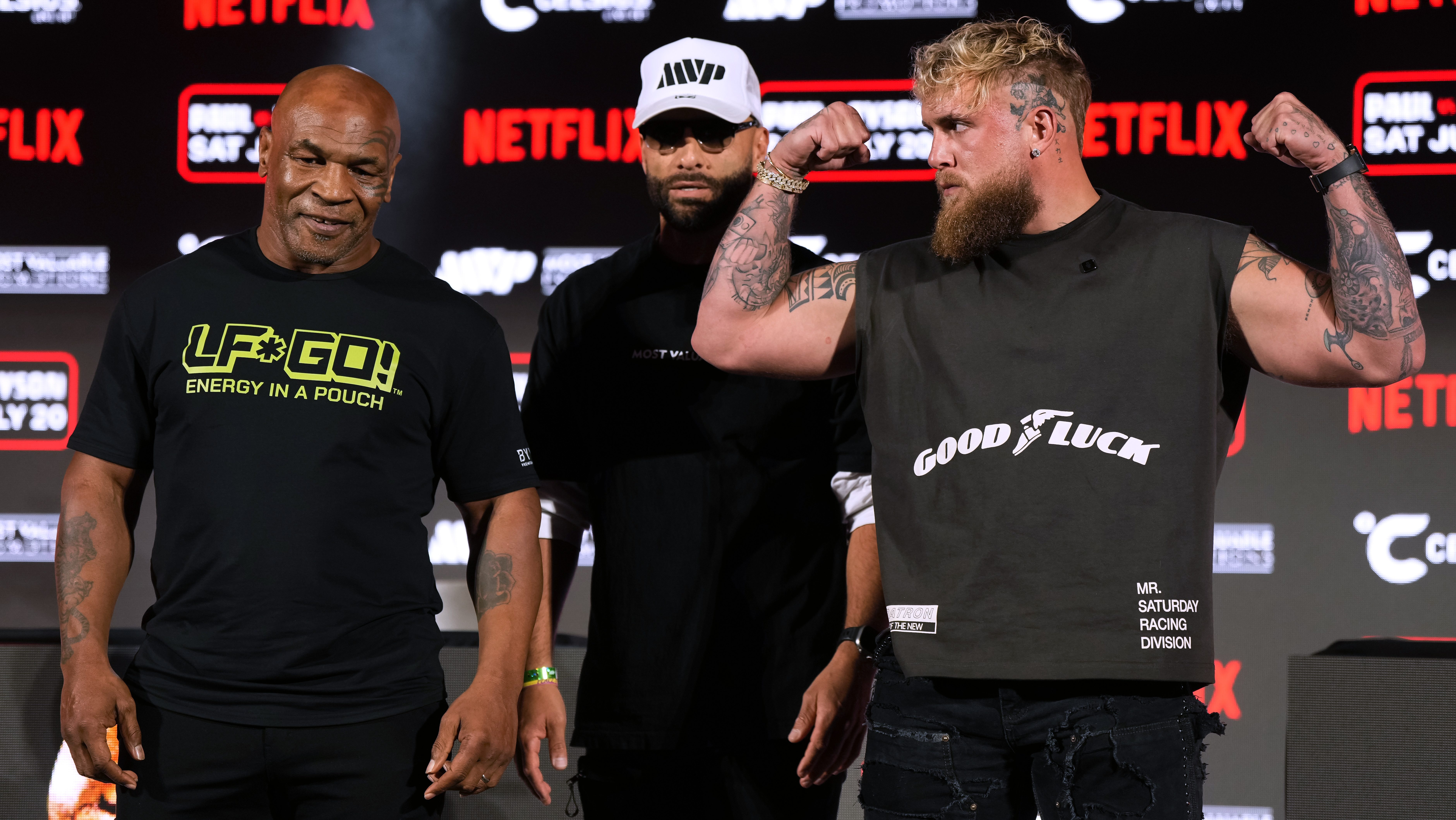An enduring truth about the brand Telfar is that the brand continues to shake up the game, regularly selling out new drops in record time, remaining in demand across all tax brackets, and outselling legacy brands on resale sites. Now, with a new unisex apparel line making its debut next week, Telfar is not only poised to once again shake up the industry, but founder Telfar Clemens is betting on it.
On Monday, March 27, at 12 p.m. ET, when Telfar’s apparel line drops online, a live dynamic pricing experiment will be in play. The rules of the experiment are simple, according to Telfar’s website: First, the line will drop at the wholesale price; then, as consumers begin buying the items, the price will increase until the item either sells out or reaches its full retail price. The price at which each item sells out will become the fixed price of that type of item within Telfar’s forthcoming apparel range. In effect, consumers will set their own prices for Telfar’s apparel.
 Telfar’s dynamic pricing experiment will go live Monday, March 27, at 12 p.m. (ET). (Screenshot: Telfar)
Telfar’s dynamic pricing experiment will go live Monday, March 27, at 12 p.m. (ET). (Screenshot: Telfar)This experiment, which Clemens describes as the “opposite of a sale,” has been devised to be a game changer for fashion retail that puts the power in the hands of the consumers while staying true to Clemens’ tenet to ensure any and all can afford to rock Telfar.
“Many brands use price as a barrier to entry. I never wanted that for my brand,” Clemens told Fast Company in an interview about the new pricing structure.
Clemens and his creative director, Babak Radboy, told Fast Company they came up with the idea after realizing how arbitrary pricing is in the retail world. Essentially, brands typically upcharge for well over an item’s wholesale price or set the highest price they think they can fetch with little rhyme or reason beyond profits.
“The more we thought about it, the more it became clear that the pricing model in fashion doesn’t make any sense,” said Radboy.
The dynamic pricing model won’t just be a creative stunt to move products. The results of the experiment will provide data to help Clemens and Radboy better understand what items consumers actually want and what they’re willing to pay. The rate at which items sell will inform the ordering for Telfar’s next collection.
“This will give us information about how much of each product we should order in the future,” Radboy said, adding, “And the larger the order, the cheaper it costs to manufacture.”
Clemens hopes that the dynamic pricing model will demonstrate a new and more sustainable strategy for the fashion industry. He noted that many brands introduce lines without a clear understanding of how much to order and are often forced to mark items down considerably as time passes. There’s also the fact that roughly eight out of 10 Black-owned businesses fail, largely due to being unable to properly scale their businesses in response to demand.
Despite its emphasis on affordability and accessibility, some aren’t fully convinced of Clemens’ plan. Many have taken to social media to express their concerns that the experiment sounds suspiciously similar to Ticketmaster’s controversial dynamic pricing structure. The difference here is that there is a price range with a set minimum and maximum, the maximum being a regular price rather exorbitantly overpriced. As noted by Fast Company, “It’s unclear whether [Telfar’s] customers will fully understand the broader philosophical objective of the exercise, but they’ll no doubt be excited to snag Telfar merchandise for lower prices than ever before.”
If you miss out on this collection, which will include hoodies, sweatpants, long jerseys, and drawstring t-shirts, you won’t have to miss out on the dynamic pricing. The experiment will run on all upcoming Telfar apparel drops through April 24, 2023 — at which point we will learn just how successful the experiment was.
TheGrio is FREE on your TV via Apple TV, Amazon Fire, Roku, and Android TV. TheGrio’s Black Podcast Network is free too. Download theGrio mobile apps today! Listen to ‘Writing Black’ with Maiysha Kai.
.png)











 English (US) ·
English (US) ·